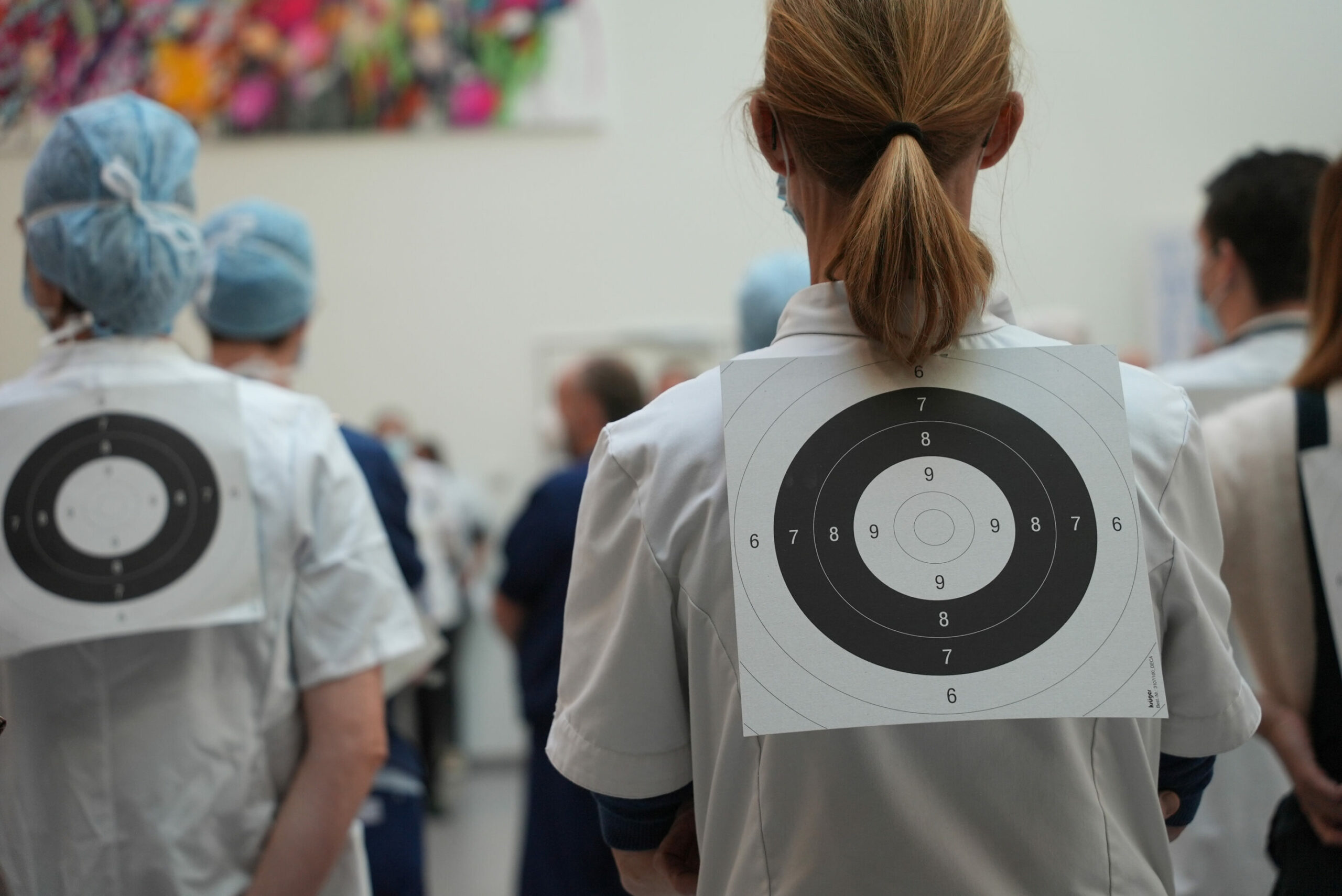On Friday, British MPs approved legalisation which will allow assisted dying for certain terminally ill patients in England and Wales.
The historic bill was passed as MPs voted 330 to 275 in favour, nine years after a similar proposal was rejected by the House of Commons.
While the UK bill must still pass several stages in Parliament before it can be definitively adopted, in Belgium euthanasia has been legal for more than two decades.
So what's the difference between assisted dying and euthanasia, and what is the law in Belgium?
Assisted dying, assisted suicide and euthanasia
Although the exact definitions of these three terms are contested, they do have different meanings, and come with different legal implications.
Assisted dying generally refers to when a terminally ill person is given lethal drugs which are administered by a medical professional.
Assisted suicide is intentionally helping another person to end their life, who is not necessarily terminally ill. This could involve providing lethal medication which they then administer themselves, or helping them to travel to another jurisdiction to die.
Euthanasia is the act of deliberately ending a person's life to relieve suffering, although a person may not be terminally ill. A lethal drug may administered by a physician. Euthanasia can be voluntary, where a patient consents, or involuntary, for example where a patient cannot consent because they are in a coma.

© Hiroshi Tsubono/Unsplash
The situation in Belgium
In 2002, Belgium became only the second country in the world to legalise euthanasia, two months after its neighbour the Netherlands.
Since then, Belgium and the Netherlands have been joined by a number of other countries that have made some form of assisted dying legal, including Luxembourg, Spain, Canada, New Zealand, and Australia, as well as some US states.
Belgium's euthanasia law covers "the deliberate termination of life by someone other than the person concerned, at that person's request".
Specifically, the law states that a patient can request euthanasia when:
- they suffer from persistent unbearable physical or psychological suffering
- the suffering is due to a severe and incurable illness caused by an accident or disease
- the request for euthanasia must be voluntary, deliberate and in writing repeatedly
The final point has given rise to some issues, for example if a patient fills out a euthanasia request form and subsequently develops dementia, and is no longer able to confirm their desire to die. Extending euthanasia rights to people in Belgium with dementia was a subject of debate in the outgoing government.
Euthanasia in Belgium may only be practised by a doctor, who applies drugs either intravenously or orally (although the latter is rare). To apply for euthanasia, in most cases you have to be a legal resident in Belgium. In theory the law is applicable to children, but there have been only five child euthanasia cases since the law permitted it in 2014.
In 2022, Belgium's Constitutional Court ruled that key provisions of the law cannot be consistently reconciled with the Constitution. The ruling does not mean that euthanasia will become illegal again, but the court took issue with parts of the legislation which make doctors technically guilty of murder if they violate minor procedural rules.
Making the request
A physician will evaluate the applicant’s medical outlook in terms of prognosis and chance for improvement, and it is up to the applicant to convince the physician about the degree of their unbearable suffering and despair, and the wish to end their life.
In a second step, the attending physician must consult a colleague (a “LEIF doctor”) who will also speak with the applicant. A LEIF doctor is a trained physician specialised in all aspects related to euthanasia and palliative care in Belgium.
If the physician advises a euthanasia applicant that there are still other options, such as palliative care, the applicant may reject this assessment and still apply for euthanasia.
If the applicant is not suffering from a terminal illness, but for example has an incurable mental illness which is causing unbearable suffering, a third physician must also be consulted.
Following that, a waiting period of one month goes into effect between the final written request for euthanasia and the lethal injection.

A protest action of a delegation of doctors of AZ Jan Palfijn Hospital in Ghent, after a doctor was involved in an euthanasia of a 91 years old patient from palliative care service. Credit: Belga / Jonas D'Hollander
Growing number of procedures
Since the law's introduction, Belgium has recorded around 2,500 cases of euthanasia every year and growing. According to the Federal Control and Evaluation of Euthanasia Commission (FCEE), there was a 15% increase in the number of euthanasia procedures in 2023.
Last year saw 3,423 euthanasia procedures conducted, compared to 2,966 in 2022 and 2,699 in 2021.
Cancer remains the primary justification for euthanasia in Belgium, being the cause in over half (55.5%) of cases, mostly involving incurable tumours.
While psychiatric conditions are also more frequently being brought forward as grounds for euthanasia, they still made up only 1.4% of total cases last year, or 48 individuals.
The FCEE has also noted an increasing number of foreigners travelling to Belgium for a euthanasia procedure. Last year 110 individuals living abroad specifically travelled to Belgium for euthanasia, the majority being French (101).
Figures from last year also show that most euthanasia declarations received by the Belgian authority are in Dutch (70.8%).

